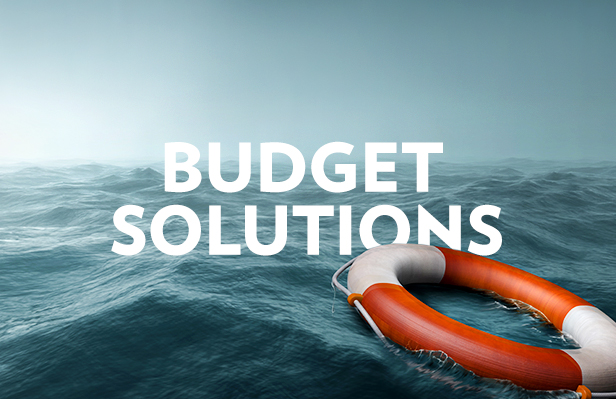Press Release

News Release: Lawmakers Must Demand Reforms, Reject Tax Hikes to Fix Unbalanced Budget
On the last day of the state’s fiscal year, Senate leaders passed a $32 billion budget that boosts state spending by $500 million with no way to pay for it. This spending increase coupled with an existing budget shortfall means hardworking Pennsylvanians should be on notice that they may be asked to cough up even more to fund government’s spending addiction.
Nathan Benefield, vice president and COO for the Commonwealth Foundation, commented, “With this budget on track for approval in the House and the governor’s signature, lawmakers must take this opportunity to demand substantive structural reforms in related budget bills to be passed over the next weeks.”
ANALYSIS
The budget isn’t balanced:
Based on this budget and the latest revenue forecast, the year will end with a $1.6 billion deficit, and lawmakers need approximately $500 million in new revenue to pay for next year's spending list. Passing a spending bill without a plan to pay for it violates the constitutional requirement for a balanced budget.
There is no “agreed to” plan to balance the budget, much less legislation passed by both the House and Senate to generate revenue whether via borrowing, expanded gambling, liquor privatization, or transfer of other funds.
Passing a spending plan without a plan to pay for it will result either in pressure to make bad decisions, like job-killing tax hikes, or in another deficit. Or both, as was the case with the current budget.
Spending increase over last year's enacted budget exceeds TPA:
The Senate budget represents $32.0 billion in General Fund spending next year. This is an increase in spending of $216 million over the House budget passed in April.
The budget bill includes a whopping $397 million in supplemental appropriations for 2016-17—spending above and beyond the $31.5 billion budget passed last June. This increase is entirely due to cost overruns in Human Services. The governor's proposed budget and the House budget included only $234 million in supplemental spending. With these supplementals, the actual 2016-17 budget deficit represents nearly $1.6 billion–that is how much taxpayers owe in unpaid bills to start the new fiscal year.
The proposed spending exceeds the limit embodied in the Taxpayer Protection Act (TPA) by nearly $100 million. The TPA index represents the average growth of population and inflation (1.16%) applied to last year's enacted budget.
Departmental increases:
The proposed budget:
- Restores virtually all the House reductions in corporate welfare.
- Includes a $40 million increase in spending on Agriculture from the House budget.
- Includes a $430 million increase in K-12 education spending from last year.
- Increases the legislative budget by $15 million.
What’s in the revenue plan?
- Borrowing? There’s a good chance to expect the “revenue” package will include borrowing against future revenue—most likely from the tobacco settlement fund.
- Severance Tax? Legislative leaders indicate an additional natural gas severance tax isn't on the table. Yet many groups, including government unions and political groups funded by unions, are ramping up their pressure for a severance tax. If there isn't an agreement on a revenue package, it's impossible to really say what won't be in it.
- Gambling? Expanded gambling has been a hot topic in the capitol, but there's no agreement on that either. Lawmakers could vote for a limited expansion of casino gambling. Or they may pass video gambling in bars. It's possible we end up without any gambling expansion. We don’t know, because there is no agreement.
- Drink Tax? Another rumored tax increase would increase what bars charge on alcoholic drinks. Assessing the sales tax on the retail price of alcoholic drinks at bars and restaurants punishes small businesses, and simply takes more from the pockets of patrons.
“Last year the legislature passed a budget, which Gov. Wolf let become law without his signature, before passing a revenue plan,” noted Benefield. “That didn't turn out well. The revenue package eventually included $650 million in tax increases—including an e-cigarette tax that resulted in nearly 100 vape shops closing, a liquor modernization proposal that didn’t deliver, gambling revenue that never happened, and a proposed loan that was blocked by litigation. Lawmakers must demand better this year.”
What lawmakers need to do:
- Reduce handouts for politically-selected corporations.
- Let grocery stores sell liquor. Privatizing alcohol sales would not only increase revenue, but reduce PLCB costs.
- Prioritize all spending, including the billions of dollars outside the General Fund. Bringing some of those other funds back into the General Fund budget would close the deficit without taking more for working families.
- Adopt meaningful long-term welfare reforms. If we are to put our fiscal house in order, addressing the long-term growth while improving the quality of programs must be a top priority. Putting meaningful work requirements in the welfare code would promote both fiscal responsibility and independence.
Benefield continued: “While much of what could happen to build a revenue package would be bad for taxpayers and consumers, these reforms would close the budget gap without demanding one penny more from hardworking Pennsylvanians. Lawmakers should demand that these solutions be on the table in the coming days.”
Click here for even more analysis of the Senate’s budget plan.
Nathan Benefield and other Commonwealth Foundation experts are available for comment. Please contact Gina Diorio at 862-703-6670 or [email protected] to schedule an interview.
# # #
The Commonwealth Foundation transforms free-market ideas into public policies so all Pennsylvanians can flourish.